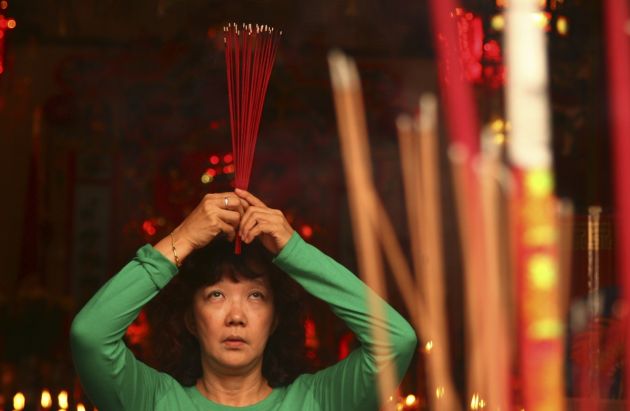U.N. experts warn Indonesian law will restrict freedom of religion

United Nations independent experts on freedom of association, expression, and religion have warned that Indonesia's proposed Mass Organizations law threatens rights to freedom of association and religion.
The U.N. group issued its warning on Feb. 14 about the Mass Organizations Bill due for vote later this week and urged Indonesia lawmakers to amend the proposed law to bring it in line with international human rights norms and standards.
The Bill on Mass Organizations compels those founding associations not to be in contradiction with Pancasila - the official State philosophy in Indonesia that consecrates the belief "in the One and Only God."
The Jakarta Post newspaper reported on Feb. 10 that the law "could be used as a basis to introduce repressive measures against local and international NGOs and civil society organizations deemed a threat to the nation."
The draft law says organizations have to maintain religious values in Indonesia, the world's largest Muslim country where about 86 percent of the 248 million people are followers of Islam, 6 percent are Christians and some 2 percent are Hindus.
"These provisions can violate freedom of religion or belief," stressed the U.N. Special Rapporteur on freedom of religion or belief, Heiner Bielefeldt.
He noted that "freedom of religion or belief has a broad application, covering also non-theistic and atheistic convictions."
"The State must ensure that any restriction on the rights to freedom of association, expression, and religion is necessary in a democratic society, proportionate to the aim pursued, and does not harm the principles of pluralism, tolerance and broadmindedness," stressed the U.N. Special Rapporteur on the rights to freedom of peaceful assembly and of association, Maina Kiai.
The expert noted that Indonesia's legislative initiative "runs contrary to the remarkable progress towards democratization Indonesia has made since the past decade, which has paved the way for a flourishing civil society."
Associations are restricted to limited categories of activities by the law. They also face vague prohibitions, including bans on activities which "endanger the unity and safety of the Unitary Republic of Indonesia" and "embracing, instigating, and propagating beliefs and religions conflicting with Pancasila."
Kiai said, "I am dismayed by these provisions; they are illegitimate and must be amended accordingly."
He noted that the Indonesian government has also proposed to further ban "activities which are the duty and jurisdiction of the law enforcers and government," which could be interpreted as preventing associations from uncovering instances of bad governance, including corruption cases.
"Associations should be free to determine their statutes, structures and activities and to make decisions without State interference," Kiai pointed out.
He warned that the bill threatens associations with burdensome administrative requirements.
The Bill also allows the government to oversee the administration of associations by establishing an information system, to be determined by regulations.
"The use of such a system could infringe on the autonomy of civil society organizations and on their rights to privacy and freedom of expression," said the Special Rapporteur on the promotion and protection of the rights to freedom of opinion and expression, Frank La Rue.
The Bill also significantly curtails the activities of foreign associations. They must obtain a permit from Indonesia' Ministry of Foreign Affairs to operate.
Activities must follow the philosophy of Pancasila as embedded in the legislation and should not disrupt the "stability and oneness" of Indonesia, and should not carry out "practical political activities" or fundraising or activities "which disrupt diplomatic ties."
In addition, foreign nationals wanting to found an association face discrimination. Among restrictions, they must have lived in Indonesia for at least seven straight years and place 10 billion rupiah (more than US$1 million) of their personal wealth in the association.
"I am concerned that certain provisions in the Bill will hamper the legitimate human rights work of civil society in the country, in particular of foreign societal organizations," said, the Special Rapporteur on the situation of human rights defenders, Margaret Sekaggya.
Finally, the Indonesia government may suspend associations without a prior court order.
"Let me stress that suspension of associations should only be sanctioned by an impartial and independent court in case of a clear and imminent danger resulting in a flagrant violation of domestic laws, in compliance with international human rights law," stated Kiai.